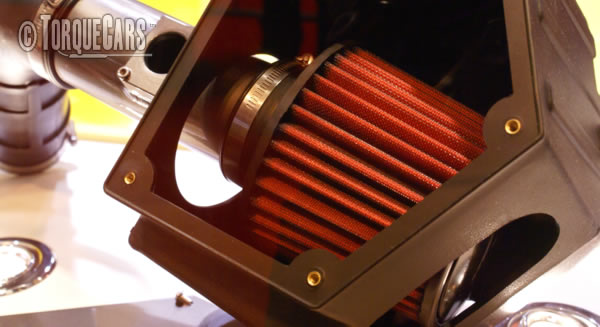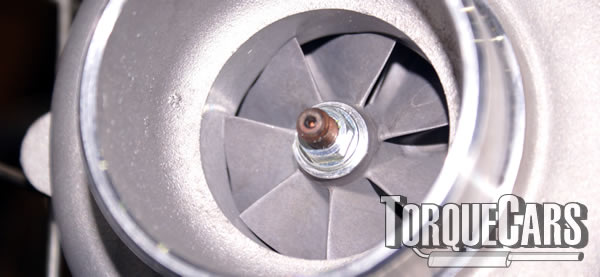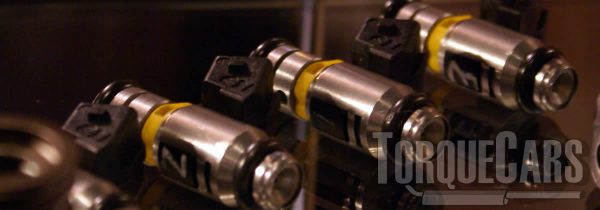Guide to Tuning the BMW B38 Engine
"All you need to know about tuning mods and performance parts on the BMW B38 engine!"
Introduced in 2013, the B38 is part of BMW's modular engine family, signaling a departure from conventional powerplant design philosophies.
As a compact three-cylinder engine, it embodies a paradigm shift in the pursuit of efficiency without compromise. This diminutive powerhouse, with a displacement of 1.5 liters, defies expectations by delivering a harmonious blend of power and fuel efficiency.
At its inception, the B38 graced the BMW i8, showcasing its prowess in a cutting-edge hybrid sports car. However, its influence extends beyond electrified vehicles, finding a home in various BMW models, including the 2 Series, X1, and MINI Cooper.
The i8 version had quite a few upgrades and revisions to ensure reliability but does highlight what this platform can provide.
The B38's initial power output of around 134 horsepower and 162 lb-ft of torque hinted at its capacity for spirited performance within a compact frame.
Throughout its evolution, the B38 engine has undergone meticulous revisions to fine-tune its capabilities. BMW's commitment to constant improvement is evident in the engine's adaptable design, which facilitates advancements in efficiency, emissions control, and overall performance.
Features such as direct fuel injection, a twin-scroll turbocharger, and innovative thermal management systems underscore the engine's technological sophistication.
The B38 crops up regularly in our emails and forums with people asking about the best mods and upgrades for this engine. So which mods and upgrades do we recommend? What is the best way to tune a B38 engine?
The B38 is a 3 cylinder turbo petrol engine, which replaced the N13 in 2013. It is a small, light and powerful considering it's diminutive capacity.
We review and look at B38 tuning and show the premier mods and upgrade options for your project.
A fairly light engine like the B38 feels faster than it should looking at the power figures. I find it amazing how much weight affects a cars performance. The best mods in my opinion are turbo upgrades, tunes or remaps and handling, but I will go into all of the popular options in this article and show which ones are best for you.
The fact BMW can extract around 100hp from a 3 cylinder engine shows that capacity does not matter if you use a turbocharger and it is just ripe for mods and upgrades.
BMW B38 make a good tuning project and with the optimum sports modifications like remapping, turbo improvements and camshafts you will positively increase your driving fun.
Please watch my video on BMW Tuning Tips. Be sure to keep up with our latest YouTube content and subscribe.
History, Power & Specs of the Engine
B38: 3 cylinder turbocharged petrol engine.
With tuning a B38 engine can produce more power. Base power is respectable and very well suited to the Mini Platform and 1 & 2 series.
B38A12U0
- 55 kW (74 bhp) at 4,000 rpm 150 Nm (111 lbft) at 1,400–4,000 rpm
- 75 kW (101 bhp) at 4,250 rpm 180 Nm (133 lbft) at 1,400–4,000 rpm
2014–current F55/F56 Mini One First
2014–2018 F55/F56 Mini One
B38A15M0
- 75 kW (101 bhp) at 4,250 rpm 180 Nm (133 lbft) at 1,400–4,000 rpm
- 100 kW (134 bhp) at 4,400–6,000 rpm 220 Nm (162 lbft) at 1,250–4,300 rpm
2015– BMW F45/F46 216i Active Tourer / Gran Tourer
2018– F55/F56 Mini One
2015– BMW F20/F21 116i
2015– BMW F20/F21 118i
2015– BMW F22/F23 218i coupe / convertible
2014– BMW F45/F46 218i Active Tourer / Gran Tourer
2015–2019 BMW F30/F31 318i
2015– BMW F48 X1 sDrive18i
2014– F55/F56/F57 Mini Cooper
2015–2019 F54 Mini Clubman
2017– F60 Mini Countryman
2017– F39 X2 sDrive18i
2017– F45 225xe Active Tourer (PHEV)
2019– F40 118i
2019– F44 218i Gran Coupé
B38K15T0
- 170 kW (228 bhp) at 5,800 rpm 320 Nm (236 lbft) at 3,700 rpm
2013– BMW I12 i8
Tuning the BMW B38 and best B38 performance parts.
Best B38 tuning mods
The top B38 upgrades on an engine are typically the ones that give the best power gain for you spend.
I look for cost effective mods, which is not always the popular B38 upgrades I see people installing.

The ecu map and fuel pump and injectors also have a large bearing on the torque gains you'll achieve.
Altering valve durations can alter the torque band and on most engines the exhaust and intake durations do not need to match, although most cams and tuners use matched pairs there are some advantages to extending the intake or exhaust durations.
Please watch our video which covers the 5 principles of tuning your car. Be sure to keep up with our latest YouTube content and subscribe.
Best mods for your B38
- Engine Tunes - B38 engine tuning/remapping provides the biggest gains for the money, replacement ECUs, and piggyback ECUs are all alternatives that work pretty well on the B38.
- Upgrades to turbochargers and superchargers - Adding a turbocharger is the most dramatic method to increase air supply, which permits you to utilize more fuel and make better power figures. It is one of the most costly modifications it offers big gains.
- Flowing and porting the Head - Head work will get air flowing into the engine while removing turbulence or restrictions.
- Intake Upgrades and Sports Exhausts - NB: on their own these mods will NOT ADD POWER on most cars, but they can help release power after other mods by lessening the restrictive flow.
- Performance intercooler - reducing the intake temps after the turbo, and maintaining the air flow are priorities here.
B38 Tuning Stages
Typical stage 1 mods often include: Remaps/piggy back ECU, Panel air filters, Intake manifolds, drilled & smoothed airbox, Sports exhaust header/manifold, Fast road camshaft.
Typical stage 2 mods often include: high flow fuel injectors, induction kit, Sports catalyst & performance exhaust, fuel pump upgrades, Fast road cam, Ported and polished head.
Typical stage 3 mods often include: Adding or Upgrading forced induction (turbo/supercharger), Twin charging conversions, Engine balancing & blueprinting, Crank and Piston upgrades to alter compression, Competition cam, Internal engine upgrades (head flowing porting/bigger valves).
Remaps helps release the full potential of all the tuning parts you've fitted to your B38. These are specialised engines and your tuner really needs to understand them to wring out a decent amount of reliable extra power.
The following options have been recommended to me by our B38 owners. Please use the comments to tell me about your experiences.
- More BHP
- EuroSpec
- Performance Torque
- Superchips
In some cases, factory ECUs are locked so this will prevent them being mapped. In this case an aftermarket ECU is the route to take, and many of these will outperform factory ECU's but make sure it has knock protection and that you get it setup properly.)
It will usually give you around 30% more power on turbocharged vehicles but your mileage may rely on the tuning parts you've fitted and the condition of your engine.
Pushing air and fuel into the B38 engine is the aim to any tuning task.
The intake plenum transmits the air from the intake filter and allow it to be sucked into the engine cylinders.
The size of bore and shape and flow rate of the Intake manifold can make a substantial change to fuel delivery on the B38.
On popular production engines plenum chambers are begging for aftermarket parts, although some car makers provide reasonably well designed plenum chambers.
Increasing the B38 valve size, getting port work and head flowing will also boost performance, and more importantly will raise potential for a better performance increase on other tuning parts.
B38 Turbo upgrades

The more air you can get into an engine, the more fuel it can burn and uprating the induction with a turbocharger upgrade makes superb power gains.
You get larger power gains when tuning turbocharged engines. Also I see that most turbocharged engines contain stronger components.
There are weak spots for every engine, with some being very over engineered and some just sufficiently able to handle stock power
See where you'll find these restrictions and install better pistons and crank to survive the power.
I often see mechanics spend lots of money on turbo upgrades on the B38 and because they didn't map it properly the engine throws a rod.
Big upgraded turbos tend to experience a bottom end lag, and little turbos spool up quickly but don't have the peak end torque gains. A big turbo is not suited to this 3 cylinder engine so are generally best avoided.
It is common that there's a limitation in the air flow sensor AFM/MAF on these engines when considerably more air is being pulled into the engine.
You'll see that 4 bar air sensors coping with quite large power gains, whereas the OEM air sensor was restricting bhp and torque at a much lower level.
B38 Intercooler Upgrades
Basically, an intercooler cools the intake air charge before it reaches the engine. Install an intercooler in front of the radiator to take advantage of the large volumes of cold air that are reaching the cooling system there.
In addition to providing 5-10% more power, a well-designed intercooler may keep the engine cooler for longer.
Turbocharged cars require an intercooler, and stock intercoolers benefit from upgrades. The most important advantage is that they remain cooler for longer periods of time and allow for larger power figures for longer durations of time.
Remember that you want to get as much air into the engine as possible, so if the intercooler's internal core impedes airflow, you'll lose power. It is the intercooler's internal flow characteristics and cooling fins that are responsible for its operation.
The fins should have the largest surface area, while the core should have a minimal number of tapered bends and no internal welds to create turbulence. Given the benefits of having a high-quality intercooler and the minimal airflow loss inherent in a well-designed one, this argument fails.
In practise, an intercooler that is too large will restrict airflow, thus finding the right size is crucial (this is something which can be discussed in more detail in our forum.)
Fuelling upgrades on the B38

You will need to ensure that the engine is not starved of fuel so need to look at the fuelling when you start extending past 20% of a torque increase.It makes sense to be generous with your injector capacity.
The accepted safe increase is to add another 20% when fitting an injector, this allows for injector deterioration and affords a little spare capacity should the engine need more fuel.
We think this one is common sense, but you'll need to match your fuel injector to the type of fuel your car uses as well.
B38 Exhaust
You only need to upgrade your exhaust if your exhaust is actually creating a flow problem.
On most factory exhausts you'll see your flow rate is still ok even on modest power gains, but when you start pushing up the power levels you will need to get a better flowing exhaust.
Sports exhausts can usually air flow from the engine but do not go too big or you could very well end up with a reduced flow rate. So generally speaking, keep to 1.5 to 2.5 inches for best results.
Usual exhaust restrictions can be located the catalysts installed, so adding a better flowing race alternative such as a sports catalyst pretty much removes this restriction, thanks to it's larger size and surface area, and will effectively raise the performance to levels you would expect without having a catalyst installed, but keeps the car road legal.
Weak spots Issues & problem areas on the B38
The B38 engines are generally reliable and solid units, as long as you follow the manufacturers service schedules, and use a good quality oil to ensure longevity. Few problems should happen as long as they are regularly serviced and maintained.
Coolant Leaks:
Some B38 engines have been reported to experience coolant leaks. This could be attributed to various factors such as a faulty water pump, radiator issues, or gasket leaks. The Turbo is a common area for cooland leaks on the B38.
Timing Chain Tensioner:
Timing chain tensioner issues have been reported in some BMW models with the B38 engine. This can lead to timing chain-related problems if not addressed promptly.
Oil Leaks:
Oil leaks have been reported, and these could be associated with gasket issues or other components such as the oil filter housing.
High-Pressure Fuel Pump (HPFP) Issues:
While less common in the B38 compared to earlier BMW engines, some owners have reported high-pressure fuel pump (HPFP) issues. Symptoms may include poor engine performance and starting difficulties.
Direct Injection Carbon Buildup:
Direct injection engines, including the B38, can sometimes experience carbon buildup on intake valves over time. This can affect engine performance and efficiency.
Carbon build up in the head, particularly around the valves which will sap power or create flat spots, this is a larger issue on direct injection engines but should be looked out for on all engines. We have tips on removing carbon build up.
Vibrations on Idle:
Some B38 engines have been associated with vibrations at idle. These vibrations can be attributed to various factors, including imbalances in the engine components or issues with engine mounts.
This is a 3 cylinder engine so it won't run as smoothly as a 4, 6 or 8 cylinder one and some vibration is to be expected.
It's advisable to have a qualified technician inspect the engine mounts, balance, and other relevant components to diagnose and rectify the cause of the vibrations.
Crankshaft Bearing Failure:
In isolated cases, there have been reports of crankshaft bearing failures in B38 engines. Crankshaft bearing issues can lead to serious engine damage if not addressed promptly. Regular oil changes and adherence to BMW's recommended maintenance schedule are crucial in preventing premature wear on engine components, including the crankshaft bearings.
Water Pump and Thermostat Failures:
Water pump and thermostat failures are common concerns in many modern engines, and the B38 is not exempt. These components are vital for regulating engine temperature.
A malfunctioning water pump or thermostat can lead to overheating, potentially causing severe engine damage.
Routine maintenance checks and timely replacement of these components are essential to prevent such issues.
VANOS Failure:
VANOS, the Variable Valve Timing system, is a critical component in optimizing engine performance. While VANOS failures are not widespread in the B38, issues with this system can affect power delivery and fuel efficiency.
Regular maintenance and prompt attention to any signs of VANOS-related problems, such as rough idle or decreased performance, can help address potential issues before they escalate.
Some of our members have had issues with flat spots or glitches after applying mods and upgrades or tuning, this is not usually related to this engines design, so instead see our article on diagnosing flat spots and problems after tuning which should help you get the bottom of this issue.
Regular oil changes are vital on the B38, especially when tuned and will help extend the life and reliability of the engine.
If you would like to know more, or just get some friendly advice on Tuning your B38 engine please join us in our friendly forum where you can discuss tuning options in more detail with our tuning articles to get a full grasp of the benefits and drawbacks of each modification.
Please help us improve these tips by sending us your feedback in the comments box below.
We love to hear what our visitors have got up to and which tuning mods work best for you on your car. Which helps us keep our guides and tips up to date helping others with their modified car projects. Your feedback and comments are used to keep this page up to date, and help improve the accuracy of these B38 tuning guides which get regular updates and revisions.
Please Check out my YouTube channel, we're regularly adding new content...
PLEASE HELP: I NEED YOUR DONATIONS TO COVER THE COSTS OF RUNNING THIS SITE AND KEEP IT RUNNING. I do not charge you to access this website and it saves most TorqueCars readers $100's each year - but we are NON PROFIT and not even covering our costs. To keep us running PLEASE Donate here
If you liked this page please share it with your friends, drop a link to it in your favourite forum or use the bookmarking options to save it to your social media profile.
Feedback - What do You Think?
Please use our forums if you wish to ask a tuning question, and please note we do not sell parts or services, we are just an online magazine.
Help us improve, leave a suggestion or tip
Please watch this video and subscribe to my YouTube channel.

 Click to accept YouTube Cookies & Play.
Click to accept YouTube Cookies & Play.